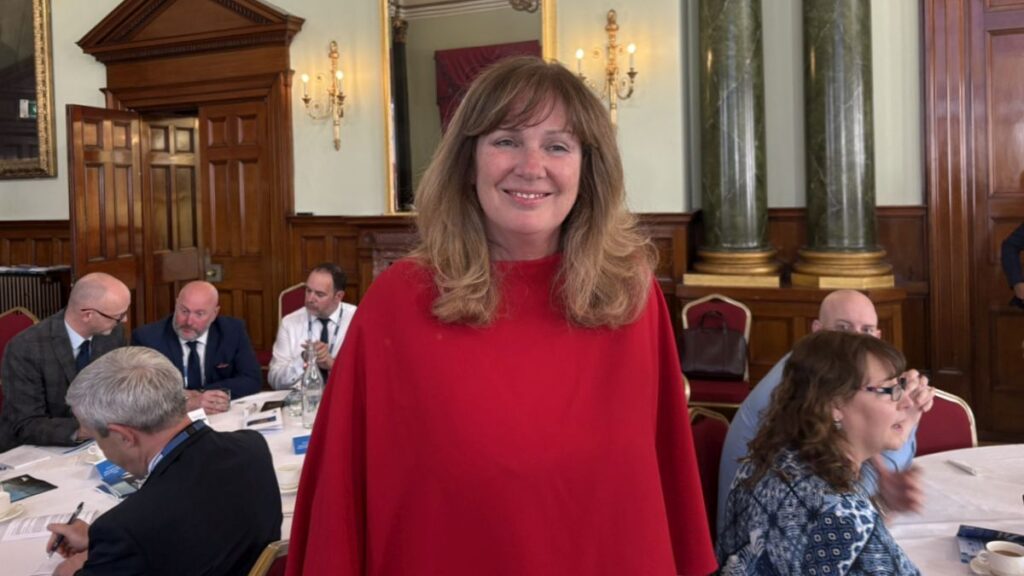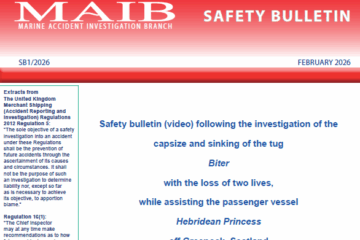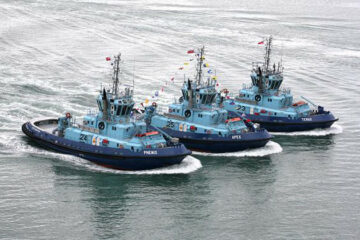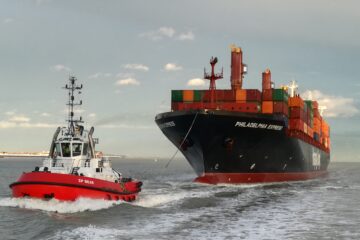Maritime and Coastguard Agency chief executive Virginia McVea has characterised tug operators as “critical national capability” while announcing the reinstatement of the specialist Eleven 02 survey service for larger tugs during her address at the British Tugowners Association Annual Conference in Belfast

“The much-loved Eleven 02 survey service will be provided again,” Ms McVea told delegates, revealing while the service isn’t mandatory, the MCA will resume full provision following difficulties with surveyor availability last year. “We are reinstating this going forward – we had to pause last year because we needed to boost our number of surveyors, and now as a part of a five-year plan for survey and inspection, we are getting going again,” she explained.
Ms McVea emphasised how vital tug assistance was during the March Solong/Stena Immaculate collision, where the emergency response prevented a catastrophic environmental disaster. “The work that was done was absolutely vital,” she stated, adding if the collision had resulted in a bunker fuel spill, “we would still be warming up in terms of the counter-pollution response.”
Ms McVea also announced a “deep dive” assessment on national salvage capacity commissioned for central government, highlighting the strategic importance of tug operations to UK maritime resilience.
For tug operators navigating changing emissions requirements, Ms McVea highlighted the critical need for more information called for in the UK’s maritime decarbonisation strategy, which remains open for consultation until July. The strategy focuses almost exclusively on vessels over 400 gt – despite most UK-flagged vessels, including many tugs, falling below this threshold.
“By about 2030, particularly 2033, it is crucial we get a contribution to the future of emissions from the under 400 gt sector,” Ms McVea stated, directly urging tug owners to respond to the consultation with practical feedback on implementation challenges for smaller vessels.
The MCA’s strategic response to technological developments includes placing surveyors rather than policy staffers “closer to the heart” of regulation and decision-making including autonomy development – an area where Ms McVea acknowledged Singapore has “stolen a march” on global competitors. “We are in a better place now,” she added.
Ms McVea also announced several initiatives with direct implications for tug operators: an innovation hub supporting companies developing future fuels and propulsion systems; modernised cadet training with revamped STCW standards; targeted safety bulletins from investigations; and mandatory insurance verification for vessels entering UK ports.
Her address included sobering statistics on wider maritime challenges, including a 30% surge in Channel migrant crossings. “We have rescued two Wembley Stadiums worth of people from the channel,” Ms McVea revealed, noting the 165,000 migrant rescues reflect operational challenges that directly impact tug and salvage resource demands.
The MCA chief concluded with a stark historical comparison that underscored her concern for UK maritime capability. “During the Falklands War, out of around 50 merchant ships suitable for military service, only about 10 were British-flagged. Today, the number of such British-flagged vessels has fallen to just 5 – half as many as we had back then,” Ms McVea stated. “It is absolutely vital that we grow what we have domestically in our interest as an island nation. And you and coasters are completely critical to that critical national capability.”
Concluding, Ms McVea extended a direct appeal for industry feedback, “Tell me where the gaps are, tell me what isn’t working… We need you like we have never needed you before.”
The article can be found on Riviera’s website here – Riviera – News Content Hub – MCA chief: ‘We need the tug industry like never before’
With gratitude to Edwin Lampert and Riviera for granting permission to the BTA to publish the article.


